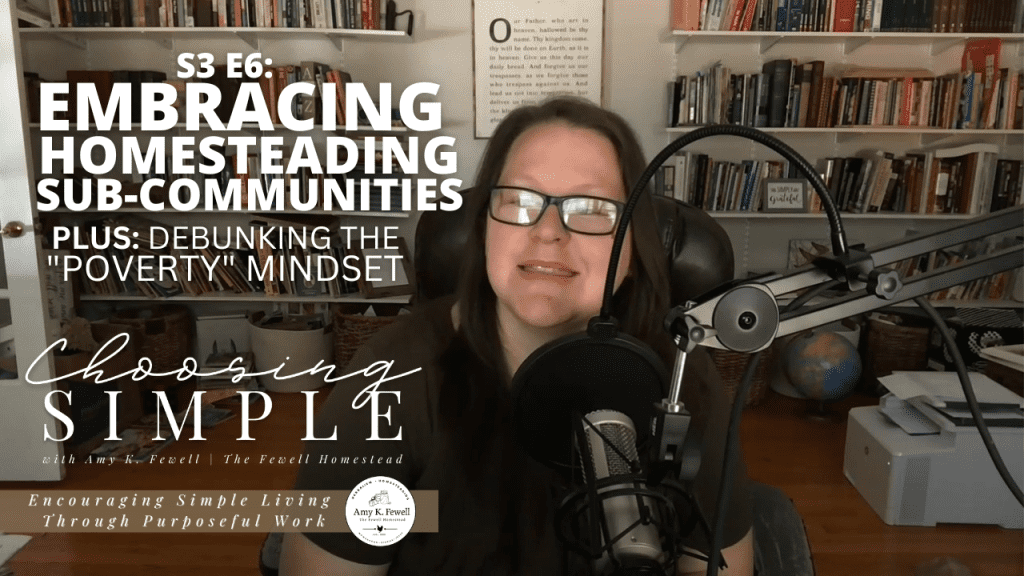
Welcome to season 3 episode 6 of the Choosing Simple Podcast. Please note that this is a transcript of the audio from this podcast. To listen to the audio, find it on your favorite podcast streaming platform, or here.
This week we are diving into a big topic. A friend of mine— maybe three or four years ago—we had a conversation about the different types of homesteading stereotypes, and in conjunction to that, the poverty mindset that often comes along with new homesteaders or just homesteading in general. And so we’re going to get started with today’s podcast.
I thought it would be fun to go over various different types of homesteaders and why it’s really important to have sub-communities within homesteading. And that’s a big topic right now that I am enjoying talking about, and I’m actually glad the topic came up maybe in a not-so-great way a week or so ago. It has doubled down on us talking more about it in the community and how we—homesteading is such a huge community and when the homesteading community becomes so big, we all have to understand that there are sub-communities within the broader homesteading movement.
So we’re going to go over some of those sub-communities today and what they are so that you—as a homesteader or as maybe a want-to-be homesteader—will know what they are and you can kind of decide, “do I fit into one or more of these sub-communities of homesteading?” Because homesteading isn’t just one broad definition. And when I first got started in homesteading, I figured that out very quickly that there were quite a few prominent people in the homesteading world—mostly on YouTube—that wanted to define homesteading as one particular thing. And that does not work. And I did not fit into that one particular category of homesteader.
And so this is something I’ve talked about for years now. I wrote a blog post about it a few years ago. It’s over on the Homesteaders of America website. For those of you who don’t know, I’m the founder of Homesteaders of America. We host at least one large event every year here in Virginia. In 2022—that would be this year—we held some events in Tennessee, but next year in 2023, we are not doing that. We’re just going to concentrate, kind of pull back. We know people—with inflation and recession—are kind of holding onto their money. And so we are going to switch it up next year. We’ll still do our big events because why not? And then we will do some other educational things that are easier to digest in content consumption, but also with your money in your pocket. So just a little shameless plug there.
So today I’m going to go ahead and get started on this episode. Some of you commented on YouTube that there were some boxes back here and I need to clean this up. I have mostly cleaned it up. Now I have to just clean up—those were HOA boxes—now I have to just clean up the books and stuff that are on the floor. So we’re going to get started with today’s episode.
Watch the Episode Here! Or keep reading…
The Regular Homesteader
So the first thing I want to talk about is the regular, everyday homesteader. What does that person look like and what is society telling us or the broader homesteading movement telling us that that person looks like? And so the broader homesteading community tells us that a homesteader is somebody who wants to live a more sustainable lifestyle. They are growing their own food, mostly. They maybe have a milk cow or they are living just as natural as possible in sourcing their own food and health and whatnot. So that’s the broader topic of homesteader.
Now, that leaves a lot open to interpretation as to what really makes a homesteader. And it has been a topic of discussion for years, like even a debate between some groups of people. And to me, that’s just ludicrous. So we’re going to kind of break it down a little bit and the sub-communities of a homesteader or the homesteading community.
The Farmer
The first one I want to say is farmer. And you’re like, wait, isn’t a farmer a homesteader? Well, not exactly. They can be. They can be the same. But not all farmers identify as homesteaders. Generally, a homesteader is someone who focuses on the home. That’s why we have home and homesteader. They are somebody who they are just focusing on growing their own food, taking care of their own health for their immediate family. It’s all things home: homeschool, home birth, home food, homegrown, all of that. A farmer is in generally is thought that they are doing it for a little more than just themselves and maybe a lot more. So, for example, I would consider myself a homesteader right now in this season of life, but I would consider Joel Salatin a farmer. And for those of you who don’t know Joel Salatin, he’s he owns Polyface Farm. And he grows tons and tons and tons of food for the entire state of Virginia and beyond. And so I would consider him a farmer.
We grew up around dairy farmers who ship their milk off to different locations. I would consider them farmers because they are producing food for more than just themselves. Likewise, I would consider my grandfather—my late grandfather—a farmer. He had cows, but he actually didn’t grow his own food very much. He did sometimes, and he sold those cows and brought them back home as an income. The cows were mostly income based and pleasure based. And so he would sell them and buy more cows and sell more cows and buy more cows. And they were black angus beef calves and cows. And so I would consider him a farmer. It was mostly business to business transactions. So homesteading is not always focused on business. And mostly it’s not. Where farming is more focused on the business type of homesteading and the structure of farming. Okay. So that is kind of a subcategory, the first subcategory in homesteading.
The Urban Homesteader
The second subcategory I want to talk about is urban homesteader. And as we’re going through these, I think it’s really important as you kind of hear what you identify most with in the homesteading world, you’re going to be like, “Ah! I fit there. Let me go find more people like that.” We’re all still homesteaders. We just have different sub-communities that we belong in and maybe multiple sub-communities that we belong in.
So urban homesteaders, I love, love, love urban homesteaders. We used to live on a half-acre, but there are people who even live on less than that. There are apartment homesteaders who they grow a few plants on their balcony or a rooftop garden or in a community garden because they don’t have the land. They don’t have the ability where they are. But that doesn’t stop them. They they get it done. You know, they work with their community. They grow what they can where they are. And it’s just really fun to see those types of things happening. It’s that flourishing mindset of the homesteader that comes out even in the urban homesteader. And most of those people are frequenting farmers markets or their local farm or their local homesteader to buy food that they can’t grow, which I think is amazing. I think that’s the first step into homesteading. And I think y’all should be commended for those of you who are in that group of homesteaders.
The Want-to-Be Homesteader
Now, that leads me to my next version or stereotype of homesteader, and that is the want-to-be homesteader. These are the people who— we have all been this homesteader, even those of us who are super experienced in homesteading. We are the ones who maybe go to the grocery store and buy all organic things because we don’t grow anything and we just don’t have the ability. Or maybe we grow a few tomato plants, but we haven’t really dove into that garden yet. So there are want-to-be homesteaders and don’t think that the want-to-be is in a bad way. It’s actually a really good thing because it gets you started. It gets you talking about real food and real health and real experiences.
And so I love this homesteader because they’re just a baby homesteader. And people like me who are more experienced can encourage them to take that leap. So if you fall into that want-to-be homesteader stage, you are still a homesteader at heart. And I think that that is amazing because before any of us were the “real homesteaders”—I say that in air quotes because, whatever, there’s drama around that—you had to start as a want-to-be homesteader. Most of us didn’t grow up in homesteading and so that desire was cultivated within us and now we are doing it.
The Rancher
All right. The next stereotype of homesteader is the rancher. Now, you might be saying, well, isn’t a rancher the same as a farmer? Not really. They can be. Again, you can fall into multiple subcategories of homesteading. But a rancher is normally somebody who’s out on a ranch, hundreds of acres or at least 50 acres. Or they rent acreage. We know people who own tens of thousands—not own, but rent—tens of thousands of acres for their cattle, for their beef businesses, for whatever business they have. And they are out on the prairie and they are ranching. That is the definition of ranching, right? Normally, it’s a midwest to Western type lifestyle. And I would say that ranching falls more into lifestyle than anything else. And so these are the people who have vast amounts of land that they own or they’re renting, and they are truly doing what ranchers do. They are raising lots and lots and lots of animals, mostly for a business income, and mostly the lifestyle of the Midwest and the West.
The Holistic Homesteader
Okay. The next community in homesteading is the holistic community. Now, I do fall into this category myself. For those of you that know, I am an herbalist and I believe in all things natural and I am still getting to that point for myself. It’s a very long journey that you have to take. But yes, this is a completely different community in and of itself under the homesteading main broader community because not everyone is ready to take that leap of faith or that dive into holistic medicine and home health care. It’s a little bit scary for a lot of people.
So there is a sub-community in homesteading for holistic homesteaders who they treat their animals holistically, they treat themselves holistically. They rarely, if ever, go to the doctor or hospital unless it’s a severe emergency. And so these people tend to flock to each other. The thing that you’re going to find within these sub-communities is that they tend to group together because they have similarities and they have things that they want to talk about that they don’t fit into these other portions of the homesteading community. And that’s the beauty of it, is that you can be a homesteader and then fall into multiple sub-communities and not feel out of place in those communities.
You know, I can’t post an herbal question in a general homesteading group—I’ve tried this before—because I will literally get my head ripped off by a lot of people saying, “Just go to the doctor, you crazy woman. You’re going to kill your whole family.” So I choose not to have those conversations in the general homesteading groups, but I have my sub-community of herbalists and holistic living homesteaders that I have these conversations with. And so that is a whole different group or sub community of homesteaders in and of itself underneath the broad range of homesteading.
The Prepper
One of the last sub-communities that we’ll talk about—just one of them; I have another one—are preppers. Prepping is the ultimate homesteading lifestyle. I don’t know why we try to differentiate the two. Now, there are different sub communities of prepping that I think we need to differentiate. There are the people who are prepping just to prep. They’re not actually growing their own food. They’re not actually living a homesteading lifestyle; they’re just prepping, which kind of falls into the want-to-be homesteader category or the urban homesteader category. So that’s fine.
Then you have the other people like myself and my family who are homesteaders. We garden to prep. Our goal— I met an older gentleman not long ago, he said that they would grow three years’ worth of food in their garden. And so that sounds a little bit intimidating, but let’s explain it real quick. So they would grow like tomatoes, green beans, and pickles or cucumbers for one year. And they would grow three years’ worth of that for one year. And then next year they would grow tomatoes and potatoes and green beans, so that they had three years’ worth of potatoes to store.
And so that’s kind of our goal. We want to get to the goal where we are rotating crops, not for crop health. I think we totally miss that mark when it comes to rotation of crops. I think they rotated crops because a lot of older generations did this. They were growing singular crops, three years’ worth, so that next year and the following year, they didn’t have to grow three years’ worth of that food or another year’s worth of that food. They could grow something else in that place. So that’s kind of our goal as we homestead, and that is a prepper mentality. You want to store that food away.
We think in our minds, what if this is the only food we have? What if we can’t get food from the grocery store? That’s not fear mongering. That’s being wise. We see throughout history, we’re about at that mark again in history where there will be a huge collapse. And so we notice that. We learn from history, so we try not to repeat it. We have been through a recession. For those of you who maybe have never felt poverty or near that poverty line— we were still even better off than poverty, let’s just say that. But we had to get rid of everything. We got rid of TV, we got rid of cell phones, we got rid of everything. We lost our job— my husband lost his job. I had my job, which wasn’t paying very great back in the 2008-2009 recession. We had a brand new baby. We had just bought a house.
We’ve been through that. We’ve been there, and not being able to afford food, not being able to afford to live. And we never want to be there again. And we will—praise the Lord—never be there again because we learned from it. And our general life is teaching people, hey, we’ve been there. We’ve lived through that. We don’t want you to live through that. And it’s hard for people that have never been through that to understand it. It’s hard for people who have literally had money all of their lives and had their family take care of them all of their lives to understand that.
And so oftentimes they’ll attack that. They’ll attack that prepper mentality. They’ll attack that prepper encouragement and oftentimes call it doom and gloom. And that’s not— I mean, there are situations where people are taking advantage of it and fear mongering. But for the most part, people are just sharing information because they don’t want you to end up where they used to be or what they’ve seen happen before. And so there is a sub-community of preppers, various different kinds in the homesteading community. And I say embrace them.
There are obviously people in the homesteading community that intentionally cause divisiveness. And we know that in Titus, it talks about warn a divisive person once, warn them a second time, and after that have nothing to do with them. And I think we should practice that in the homesteading community as well. If people are intentionally being divisive, then we should keep them out of our sub— our gate, essentially. Like our personal mindset, like our personal lives, our personal households. And kind of call them out, be like, hey, we don’t have to be divisive. It’s okay. There’s room for everyone here.
And so anyhow, I love the prepping community. We are a part of that prepping community and there are different levels of prepping and different—again—different definitions and sub-communities within the prepping community. So we have sub-sub-communities within communities. And I think that’s really beautiful because we all have a place. There’s enough room for everybody.
The Religious Homesteader
And then the final sub-community that I want to talk to you about, which is a very large community within the homesteading movement, are religious communities. Not just one religion, but multiple different religions. Most homesteaders know that Mormons are wonderful preppers, but they also fall into the homesteader category. Some don’t. Some don’t homestead. Some just prep, but some homestead and prep. And they’re literally prepping for natural disasters to help their community, to help their especially their Mormon community, but to help outside of their Mormon community.
A lot of Christians do the same thing. They are prepping because they know they have a community to take care of. Maybe not their entire community, but for example, me, I’m a Christian. I know that if things go south, I have preps for my family. I need to see if I need to take care of my family up the road, my grandmother, my in-laws. You start adding that up, you’ve got 30 people all of a sudden that are just within your family that you have to take care of. And you can’t take care of the 51,000 people that are in our county right now. I can only take care of my immediate community because hello, it’s impossible to take care of everyone.
And a lot of times in these religious communities, we talk again about finding like-minded people. And I think it’s really important to embrace that as well. If you fall under the religion category of homesteader because homesteading will be a lot different for you than it will be for the general overall homesteader. For me, I see beauty in everything because I love God and I try to walk out my faith as much as possible. And so for me, my garden and taking care of my garden, that’s where I talk to God the most. That’s where I love on God the most in my homemaking and my daily chores, because I generally file homemaking also under homesteading.
And so these are things that make homesteading individualistic to each of us. They make these sub-communities amazing because you know what? I can’t often feel comfortable asking my Christian questions and my crossover scriptures about homesteading within the broader range of the homestead community. But I can within my Christian homestead community.
And so there was an uproar recently by a big YouTube influencer who wasn’t very happy about some sub-communities coming out within the homesteading community at one of our recent HOA events. And that’s fine. That’s his right. But I love it. I love seeing these other communities that are coming up and helping others that fall under that category. Even if I don’t.
I was talking to one of my team members, and I gave them examples of this person and this person that speak at our event. I don’t agree with them. I don’t fall into the sub-community that they do. But you know what? As the founder of Homesteaders of America, I have to make sure that I’m covering almost everything that I can, at least everything that’s not falling along some kind of like something illegal or overly sinful. Because I am a Christian, I have to follow my conviction on that. But I have to be very neutral in trying to represent a lot of these sub-communities within homesteading that have to do with homesteading.
And so I think it’s just really neat to see these sub-communities and these different stereotypes coming out about these communities. Like I saw somebody say that the religious community is the most hypocritical community ever, and I wouldn’t disagree with you. Christians are probably known to be the best hypocrites in the world, but so are you. And you’re not a Christian either. So we all are hypocritical in our own way. But the beauty of it is we’re walking out our faith, and I think that’s amazing. We never claim to be perfect. I go to a church full of sinful people. Every church is full of sinful people. But the world looks at us and they think that we’re supposed to be perfect when the entire basis of Christianity and most religions is that we’re not perfect and we need a perfect God and Jesus is that perfect God that forgives us and makes us better.
The Dangers of the Poverty Mindset
So now that we’ve gone through the sub-communities of homesteading— and there are probably a lot more that I don’t know about that are kind of popping up. Like there’s probably wilderness homesteaders that— you know, there’s off-grid homesteaders. Those are smaller communities and different lifestyles. So I would say there are definitely subcategories of lifestyles in homesteading underneath the subcategory main headlines that I’ve just talked about. And I probably forgot some. So if you know of any, throw them down in the comments section below, and I’m sure everyone would love to see them. If you have groups that you’re part of that belong to different sub-communities, certainly share them below. It’s great to find like-minded people. We all love homesteading, but it’s great to find people who are more intimate with homesteading because of their lifestyle or because of their beliefs and practices.
So now that we’ve gone through the subcategories, let’s talk just briefly about all of these people and this new—well, it’s not new, but the poverty mindset. So there’s two different groups of people. You have a group of people who think that only people who are rich or who have money can homestead because homesteading is so expensive.
And then you have this other category of people who think only poor people should be homesteading because homesteading is not expensive, and it’s the poverty. We think about Appalachia and we think about the Great Depression and homesteaders that lived through it and didn’t even know we were in a Great Depression until a few years after the Depression began. Goals. Those are my goals. I want to be so sustainable on my homestead that I don’t even get touched by inflation. I don’t get touched by recession. I am dependent on me and God and my family, and that is what I’m dependent on. That is not poverty. And social society will tell you that it is. It is not.
Now, there was poverty. There were people who did live this homesteading lifestyle because they couldn’t make ends meet, certainly. But it wasn’t everybody. In fact, I would venture to say that it wasn’t even the bulk of everybody. This was just the life they lived. This was the life they knew to live. And I think it’s really important to remember that media has always lied to us. Always. Because they have a certain way they think that we should live, and homesteading very rarely ever falls into that category.
And so let’s talk to the people who think you can only homestead if you’re rich, because that’s a lie. Complete and total lie. We started homesteading shortly after the recession started in 2008, 2009. Yes, it did take a little bit of money. I would venture to say we spent $800 in our first year of homesteading. Some people are like, oh, I don’t even have $800. Well, that’s probably a lie, too, because you have a cell phone that you pay for. You probably pay for high speed Internet. You probably pay for cable TV that you sit down and watch all the time. You probably pay for a $5 a cup of coffee at Starbucks. You might eat out a lot.
Those things add up. And we firsthand found out quickly that they add up. And if we stopped doing all of those things, we had a lot more money to work with even if it was only $800 for the whole year. That $800 got us started with chickens and a really big chicken coop, an eight by eight chicken coop and some rabbits. And it doesn’t have to be the best of the best. You can get started with not having the best of the best. Just grow food. It costs hardly nothing to grow a garden. You just have to put the work into it. Seeds are not that much, and I guarantee you that you have a lot of friends with a lot of seeds that would be willing to help you get started.
You do not have to be rich to Homestead. That is such a lie. Now, if we’re talking about the land category, that’s a totally different story. But that is something— you know, we just bought this homestead in March. We have been homesteading for at least 11 years. The property that we were at before was a half-acre, 900 square foot home. And we lived there with two kids at the time and ourselves and all of these animals for I guess it was probably like 15 years, 14 years, something like that. And it worked. We made it work with what we had.
We saved up after that recession to get what we have now, which is a 2800 square foot house. And if you count the basement, it’s over 5000 square feet, a almost six acre property in a very expensive county because there’s nothing here. Like there’s literally nothing in this county, which I know doesn’t make sense that it was expensive, even though there’s nothing in this county. But it’s expensive because of that. Like a lot of people want to move here and this is a non-growth county. So they are very, very strict on the things that you can do in this county when it comes to building things like houses and subdivisions. There’s no subdivisions here.
So what I want you to understand that’s how long it took for us, through the blessings of the Lord, through a lot of savings and a lot of cutting back on things, we were able to save up enough cash to get this property. And so a lot of people are saying, well, I don’t have the money right now to buy land. Of course not. Nobody does because of inflation and the land prices are outrageous. But even before inflation, I don’t have enough money to buy land. You have to be rich to do that. Well, not really. You know, I encourage you to take some financial classes. You need to be not only a good steward of the land, you have to be a good steward of your finances.
And you know what? In the Bible— the Bible talks about— this is our goal even from here moving forward. The Bible talks about leaving an inheritance for your children and your children’s children. Not just your children, but your children’s children. And our ultimate goal is to buy enough land one day to where we have our home on it. We can have our children’s homes on it. We can pass all of this on to our grandchildren. And they are set up and ready to go.
And the reality is that if society continued to do that, if farmers still did that instead of selling off the family land, if their children held on to that land instead of selling off the family land because their children might want it, we wouldn’t be in this debacle that we’re in. A lot more people would have land. A lot more people would have farms. But unfortunately, land is going to the highest bidder, even for the farmers who don’t want to see it go to the highest bidder. But their children don’t want their land.
And so just keep that in mind. A lot of things have changed in society. And if we want to take back what we’ve lost, it’s going to take a while. And so work towards it now. If you can’t buy land right now, guess what? There’s a recession. We’re already in a recession here in America. It’s going to drop and it’s going to drop hard. And when it does, be ready. Jump on that land. Take that land back. We have to take it back. And we have to create generational farms and homesteads once again if we want to set our kids and our grandchildren up for success.
All right. So that was the people who think you have to be rich to homestead. Now, the people who think you have to be poor to homestead. Homesteading is not good enough for me. And obviously those people are not yet homesteaders or they’re the bougie homesteaders. Maybe that should have been a subcategory in the main homesteading community. But I didn’t want to offend anybody. And so there are some boogie homesteaders. There are homesteaders who literally just want to homestead because it’s the trend. It’s pretty. Now, I like pretty things. I do like to make my garden pretty. I like to try to make things pretty. But that’s not my only ambition. My general ambition is to grow food and be sustainable to survive. But their ambition is I only want things to be pretty. I want to follow the trend. I want to have content for Instagram, things like that.
When you see that— it does take money. I will tell you it does take money. Now is it a bad thing? No. If those people have money and that’s what they want to do with it, then that’s what they should—by all means—do with it. But just know that that’s not necessarily realistic for a homesteader who’s just getting started. It’s more realistic what I just told you. It could take years to save up doing odd and end jobs. Y’all, we worked our tails off to get the money that we got to save up for this property.
So just keep in mind, when you see those pretty farms and these pretty homesteads, yes you might be looking at somebody who has money or you could be looking at somebody who was given a generational farm. And there’s nothing wrong with that. Or you could be looking at a content creator who this is literally what they do. This is how they make money. And so that’s what they do. But to those people, I say you don’t have to be poor to homestead. That is glorified gardening. Homesteading is a lot different. It is the act of wanting to be more sustainable and in a safe place where you don’t have to depend on any government system or community system to support you. Okay?
So no, homesteaders are not poor. No, homesteaders are not rich. There are rich homesteaders. There are poor homesteaders. And there’s most of us that fall in between that line. But one or the other is not what we are seeing in the homesteading community. And so I just wanted to put that out there. As you think about the sub-communities of homesteading that you fall into, that you love on, please love on these communities.
Some of these communities are coming under attack right now, especially religious homesteading communities and the prepping homesteading community. And it doesn’t surprise me. I had a friend message me yesterday, I guess it was, and she said, “Oh, I had this dream that this craziness that’s going on got picked up by a media company and it blew out of proportion.” And, and I said, “Okay, I don’t care,” because it doesn’t surprise me when a government or an entity or a group of people don’t want such a large, efficient community to be happening, they try to divide it.
So I just have the encouragement for you today. Do not let it happen. Do not let division happen in this homesteading community. We have sub-communities that we fall into more intimately than the broader homesteading community, but we can still—in these sub-communities—be part of a broader homesteading community. I don’t think people have a realistic idea of that if things went south, what their properties would actually look like and what their lives would actually be in the event of a major recession. We’re starting to realize that people kind of live in their own little world, but it’s really important to be prepared, whether it’s just through prepping or through growing your own food and actually doing that.
And as I mentioned, I want you to remember that as you go through this and as you start reevaluating your homesteading lifestyle and the communities that you belong to, keep in mind that your first community is your family, your extended family that lives around you and near you, and your friends that live around you and near you. And if you can count them up, those people, those family groups, their entire families, you’re already going to be up to 30 people that you might have to take care of. That’s a lot of people. And so if somebody tells you that you should be doing more or that you are selfish because you want to guard your homestead and guard your family, don’t listen to them. It is hogwash.
It is so important to be realistic about these things, because most of the time, those people have never actually sat down and thought about what community is because they’re not practicing it or they don’t have what you have. Maybe they don’t have kids. Maybe they don’t have family and friends that live around them, in which case it’s understandable that they don’t understand what most of us do have.
And so just keep those things in mind. Don’t encourage divisiveness. Embrace your community. Grow your homesteads. Love on your sub-communities. And I think at the end of the day, we can all understand each other. Even if we don’t agree with these different sub-communities, we still fall under the greater, broader community of homesteading. And that is the one thing that we have in common. Growing your own food, getting away from multiple systems that are not there for us. They are not good for us. And just loving this simple life. Don’t let anyone make homesteading complicated for you. It is one of the most simple things you will ever do. One of the most hardest things you will ever do. But one of the greatest things you will ever do in your life.
All right, guys. Thanks for listening and watching. We will see you next time on the Choosing Simple podcast.

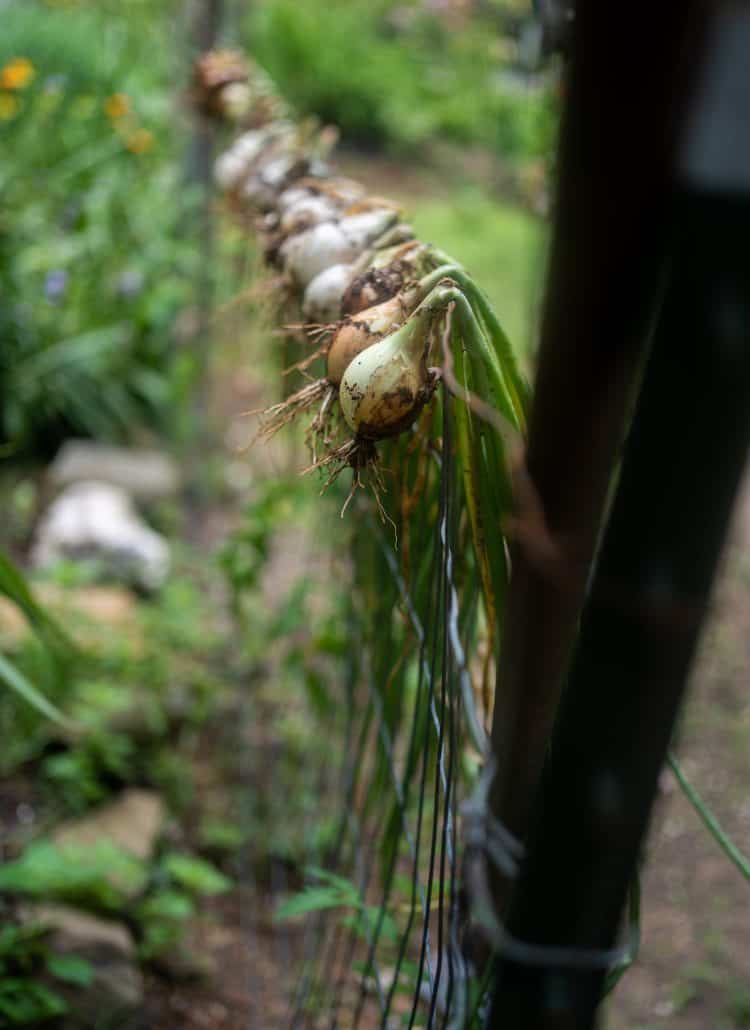
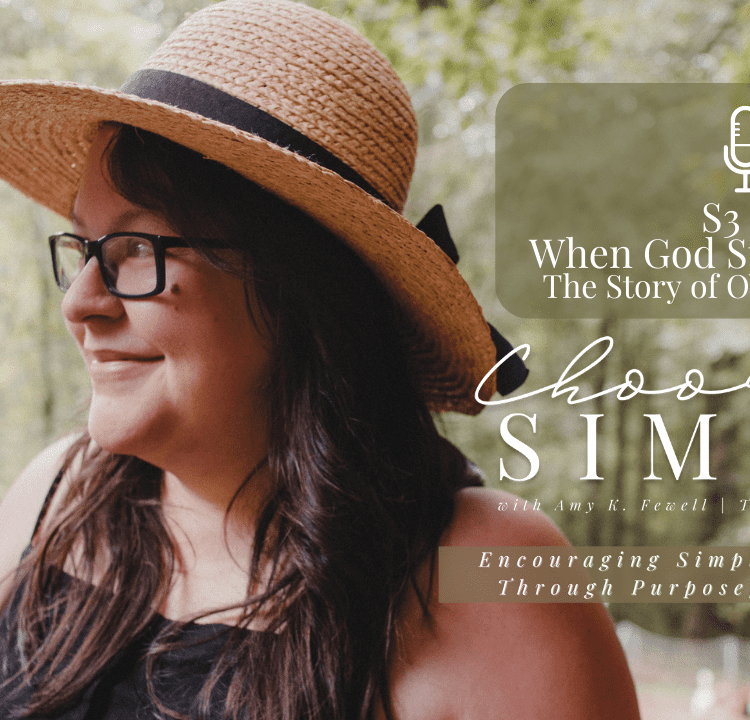
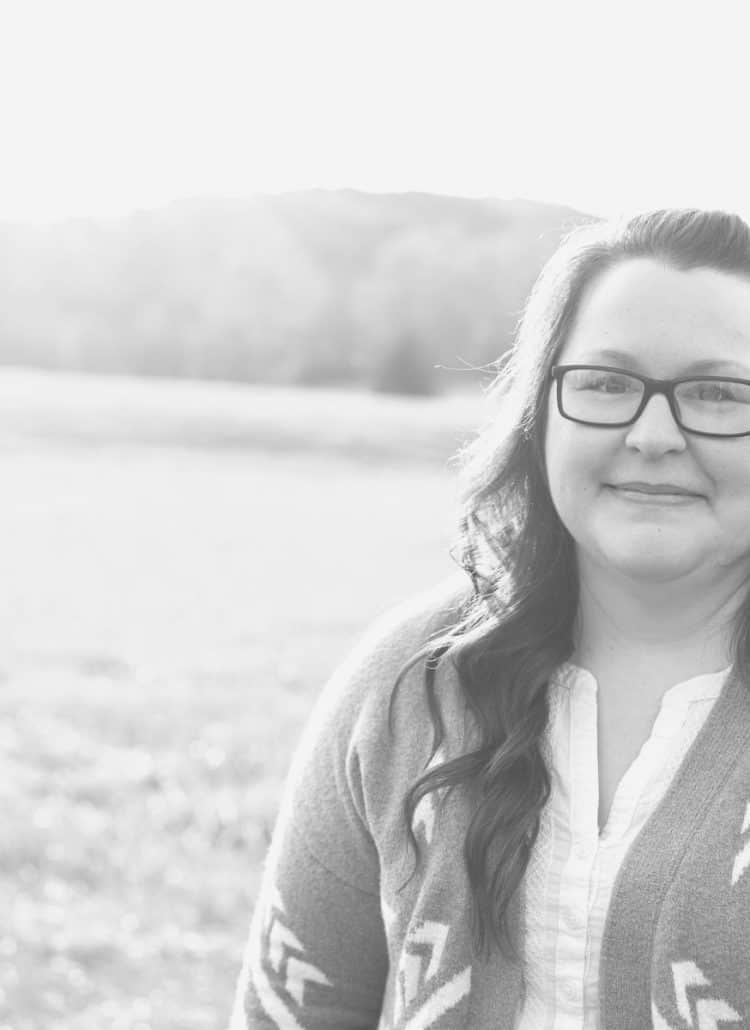
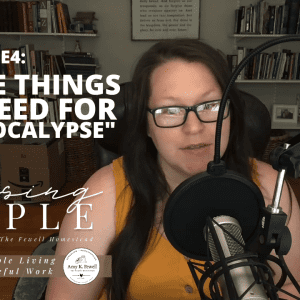
Leave a Reply